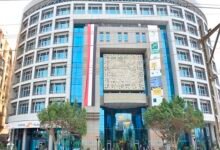7,000 youth acquires digital skills under Ghana Startup Ecosystem programme

At least 7,000 youth have acquired digital skills to be self-employable, under the Ghana Startup Ecosystem programme, as part of the digital transformation drive for sustainable job creation in the country,
Also 100 startups were trained in entrepreneurial skills and their business development plans enhanced for them to remain relevant and deliver quality products to their target markets.
This forms part of a pathway to sustainable employment project funded by Mastercard Foundation to create 30 million jobs, especially for the youth in Africa by 2030.
Edward Akani Managing Associate of Ghana Tech Lab, disclosed these Wednesday at the second edition of Ghana Startup Ecosystem Performance Ranking 2020 media briefing, an initiative of the Ghana Startup Ecosystem Mapping that seeks to build a stronger entrepreneurial ecosystem in the country.
It was conducted by the Ghana Tech Lab and its partners.
Ghana Tech Lab operates as a strategic ecosystem hub to drive digital transformation in Ghana and accelerate the country’s position as Africa’s number one centre for highly-skilled digital workforce/human capital, and serve as a fertile platform for innovative and promising startups.
The objective of Ghana Startup Ecosystem Ranking 2020, is to influence policy, create awareness on the level of the regional startup entrepreneurial ecosystem, relevant stakeholders, and the opportunities that can be accessed through the interactive Ghana Startup Ecosystem Platform which was launched in 2020.
The ranking measured the nature and level of Ghana’s Startup Entrepreneurial Ecosystem in 13 regions across Ghana categorized under six pillars: Culture, Media and Women, Support, Policy, Access to Market, Finance and Human Capital Pillars.
Mohammed Suhuyini Zakaria, Research Associate, Ghana Tech Lab said with the help of 14 tech partners, the ecosystem mapping interacted with 3,000 entities Bolgatanga, Walewale, Bono, Bono East Region, Tamale, Sunyani, Kumasi, Koforidua, Ho, Cape Coast, Takoradi, Dambai and Accra.
He said the Ghana Startup Ecosystem Mapping Project, first of its kind was a research study of multidimensional themes and factors, “using an integrated approach to map ecosystems for numerous outcomes enabling ecosystem growth and sustainability.”
The research associate added that the results from the study had been processed and transformed to influence policy and support decisions, while creating awareness of the state of the entrepreneurial ecosystem in our respective cities for their socioeconomic good.
“The objective of this dynamic platform is to serve as the go-to place for real-time and identify active stakeholders in the ecosystem value chain in Ghana. Contents on the platform get updated as and when new data is shared,” he added.
Derek Degbedzui, Data Science Associate, Ghana Tech Lab, made further presentation on the regional representation of the ranking while the Leads for the six pillars: Emelia Enyonam Kuleke, Culture, Media and Women; Daniel Kwabena Owusu, Support service; Mohammed Zakaria, Policy; David Armaah, Access to Market; Nanette Elorm Bonnie, Finance and Selorm Tito Ayikoe, gave further highlights of their findings.
By Salifu Abdul-Rahaman






